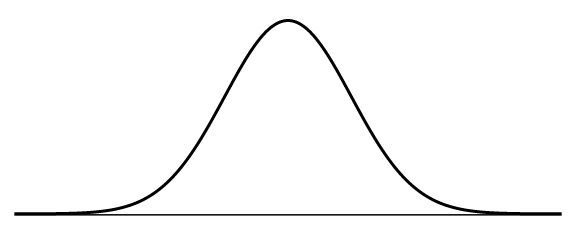Gen. Psych. Exam #2
1/51
Earn XP
Description and Tags
Chapters 5, 6, and 7
Name | Mastery | Learn | Test | Matching | Spaced | Call with Kai |
|---|
No analytics yet
Send a link to your students to track their progress
52 Terms
Learning
Change in behavior acquired through experiences
Classical Conditioning
Founder:
Learning by pairing 2 things together
Pavlov
Unconditioned Stimulus
something that naturally elicits a response
Unconditioned Response
the natural response to stimulus
Conditioned Stimulus
Something that was neutral but began to elicit a response after pairings with an unconditioned stimulus
Conditioned Response
The learned response to a conditioned stimulus
How to strengthen the Conditioned Response
Increased frequency of pairing, closer together in timing, increased intensity of unconditioned stimulus
Stimulus Generalization
The tendency for similar things to trigger a conditioned response
ex: little Albert being scared of all things small, white, and fuzzy things
Stimulus Discrimination
The tendency to distinguish between different stimuli so they don’t all elicit the same conditioned response
Extinction
Gradual weakening of a conditioned response when it is no longer being paired
Spontaneous Recovery
When the conditioned response may randomly return after extinction
Conditioned Taste Aversion
The aversion to certain foods because of classical conditioning
ex: John Garcia put fatal chemicals in lamb carcasses to condition wolves to stop killing and eating them
Operant Conditioning
Learning due to consequences
Edward Thorndike:
“Puzzle Boxes”
Law of Effect
People are more likely to do things that are pleasurable, less likely to do things that aren’t
B.F. Skinner
“Skinner box”; Furthered the work on operant conditioning
Reinforcement
Increasing behavior
Positive Reinforcement
Adding something to increase behavor
Negative Reinforcement
Taking something away or making something unpleasurable to increase behavior
Punishment
Decreasing behavior
Positive Punishment
Adding something to decrease behavior
Negative Punishment
Taking something away to decrease behavior
Shaping
Reinforcing behavior that gets closer to the desired end behavior
ex: potty chart
Continuous Reinforcement
When behavior is reinforced every time
Partial Reinforcement
Behavior that is only sometimes reinforced
Observational learning
Learning by observing and imitating the behaviors of others
Albert Bandura
Observational learning; “bobo doll” experiment
3 basic processes of the memory system
Encoding
Storage
Retrieval
Stage 1: Sensory memory
Holds memory of sensory short term. Includes Iconic memory (visual mental image), and echoic memory (mental hearing)
Stage 2: Short-term memory
Founder:
retaining new info for a short amount of time (5-9 bits of info at a time)
Chunking- remembering things in smaller groups
Maintenace rehearsal- repetition
George Miller
Stage 3: Long-term memory
Unlimited capacity
Semantic mem.- facts
Episodic mem.- personal experiences. “Episode of my life”
Retrospective- memory of the past
Prospective- future action (remembering to remember)
Stage 3: Declarative memory
Just making a conscious effort to know things. “I declare”
Stage 3: Procedural memory
Knowing how to do things without a conscious effort
Misinformation effect
Founder:
Misinformation/disruptions may distort memories
Elizabeth Loftus
Decay Theory
Founder:
Memories consist of traces in the brain that fade away over time.
Herman Ebbinghaus
Ebbinghaus forgetting curve
Forgetting occurs rapidly after learning and then more gradually overtime
Interference theory
Forgetting occurs because memories interfere with each other. The greater the similarity of the events, the more likely there will be interference
Retroactive- new info interferes with previously learned info
Proactive- old info blocks the recall of new info
Retrieval theory
Forgetting is the result of failure to access stored memories
Tip-of-the-tongue phenomenon
Recall task
Ask to come up with correct answer from memory
ex: essay exam
Recognition task
Asked to select correct answer from a selection
ex: multiple choice exam
Retrograde Amnesia
Loss of memory from past events
Anterograde Amnesia
loss of ability to form or store new memories
Amnesia
Memory loss. Causes may be biological (most common) or psychological
Intelligence
The capacity to acquire, retain, and apply knowledge to adapt to the environment
Spearman’s “g”
People who do well in one type of test tend to do well in other types of tests
g factor- general intelligence
Sternberg’s triarchic theory
3 aspects to general intelligence
Practical- common sense
Analytic- analyze problems
Creative- new ways to solve unfamiliar problems
Gardner’s model
8 different intelligences
Linguistic (words/sounds)
Logical/Mathematical
Musical
Spatial (size/shape)
Bodily-kinesthetic (body control)
Interpersonal (understanding others)
Intrapersonal (understanding one’s self)
Naturalist (patterns/processes in nature)
IQ
Intelligence quota, (mental age/actual age) x 100
Misuses of IQ
Cultural bias, too much emphasis put on IQ, and low expectations of people with low IQ
IQ is correlated with
Academic achievement, job performance, long-term health and longevity
Normal distribution chart
Bulk of scores in the middle, fewer on the ends (think of stats)

Flynn effect
The phenomenon of increasing IQ scores in the 20th century